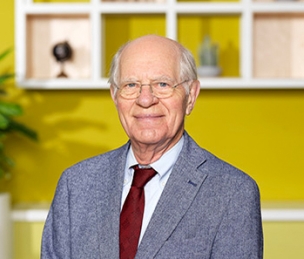Displaying 1 - 12 of 12
-
Levelt, W. J. M. (2019). How Speech Evolved: Some Historical Remarks. Journal of Speech, Language, and Hearing Research, 62(8S), 2926-2931. doi:10.1044/2019_JSLHR-S-CSMC7-19-0017.
Abstract
The evolution of speech and language has been a returning topic in the language sciences since the so-called “cognitive revolution.” -
Levelt, W. J. M. (2019). On empirical methodology, constraints, and hierarchy in artificial grammar learning. Topics in Cognitive Science. doi:10.1111/tops.12441.
Abstract
This paper considers the AGL literature from a psycholinguistic perspective. It first presents a taxonomy of the experimental familiarization test procedures used, which is followed by a consideration of shortcomings and potential improvements of the empirical methodology. It then turns to reconsidering the issue of grammar learning from the point of view of acquiring constraints, instead of the traditional AGL approach in terms of acquiring sets of rewrite rules. This is, in particular, a natural way of handling long‐distance dependences. The final section addresses an underdeveloped issue in the AGL literature, namely how to detect latent hierarchical structure in AGL response patterns. -
Levelt, W. J. M. (1992). Accessing words in speech production: Stages, processes and representations. Cognition, 42, 1-22. doi:10.1016/0010-0277(92)90038-J.
Abstract
This paper introduces a special issue of Cognition on lexical access in speech production. Over the last quarter century, the psycholinguistic study of speaking, and in particular of accessing words in speech, received a major new impetus from the analysis of speech errors, dysfluencies and hesitations, from aphasiology, and from new paradigms in reaction time research. The emerging theoretical picture partitions the accessing process into two subprocesses, the selection of an appropriate lexical item (a “lemma”) from the mental lexicon, and the phonological encoding of that item, that is, the computation of a phonetic program for the item in the context of utterance. These two theoretical domains are successively introduced by outlining some core issues that have been or still have to be addressed. The final section discusses the controversial question whether phonological encoding can affect lexical selection. This partitioning is also followed in this special issue as a whole. There are, first, four papers on lexical selection, then three papers on phonological encoding, and finally one on the interaction between selection and phonological encoding. -
Levelt, W. J. M. (1992). Fairness in reviewing: A reply to O'Connell. Journal of Psycholinguistic Research, 21, 401-403.
-
Levelt, W. J. M. (1992). Psycholinguistics: An overview. In W. Bright (
Ed. ), International encyclopedia of linguistics (Vol. 3) (pp. 290-294). Oxford: Oxford University Press. -
Levelt, W. J. M. (1992). Sprachliche Musterbildung und Mustererkennung. Nova Acta Leopoldina NF, 67(281), 357-370.
-
Levelt, W. J. M. (1992). The perceptual loop theory not disconfirmed: A reply to MacKay. Consciousness and Cognition, 1, 226-230. doi:10.1016/1053-8100(92)90062-F.
Abstract
In his paper, MacKay reviews his Node Structure theory of error detection, but precedes it with a critical discussion of the Perceptual Loop theory of self-monitoring proposed in Levelt (1983, 1989). The present commentary is concerned with this latter critique and shows that there are more than casual problems with MacKay’s argumentation. -
Klein, W., & Levelt, W. J. M. (
Eds. ). (1981). Crossing the boundaries in linguistics: Studies presented to Manfred Bierwisch. Dordrecht: Reidel. -
Levelt, W. J. M., Mills, A., & Karmiloff-Smith, A. (1981). Child language research in ESF Countries: An inventory. Strasbourg: European Science Foundation.
-
Levelt, W. J. M. (1981). Déjà vu? Cognition, 10, 187-192. doi:10.1016/0010-0277(81)90044-5.
-
Levelt, W. J. M., & Maassen, B. (1981). Lexical search and order of mention in sentence production. In W. Klein, & W. J. M. Levelt (
Eds. ), Crossing the boundaries in linguistics (pp. 221-252). Dordrecht: Reidel. -
Levelt, W. J. M. (1981). The speaker's linearization problem [and Discussion]. Philosophical Transactions of the Royal Society of London. Series B, Biological Sciences, 295, 305-315. doi:10.1098/rstb.1981.0142.
Abstract
The process of speaking is traditionally regarded as a mapping of thoughts (intentions, feelings, etc.) onto language. One requirement that this mapping has to meet is that the units of information to be expressed be strictly ordered. The channel of speech largely prohibits the simultaneous expression of multiple propositions: the speaker has a linearization problem - that is, a linear order has to be determined over any knowledge structure to be formulated. This may be relatively simple if the informational structure has itself an intrinsic linear arrangement, as often occurs with event structures, but it requires special procedures if the structure is more complex, as is often the case in two- or three-dimensional spatial patterns. How, for instance, does a speaker proceed in describing his home, or the layout of his town? Two powerful constraints on linearization derive, on the one hand, from 'mutual knowledge' and, on the other, from working memory limitations. Mutual knowledge may play a role in that the listener can be expected to derive different implicatures from different orderings (compare 'she married and became pregnant' with 'she became pregnant and married'). Mutual knowledge determinants of linearization are essentially pragmatic and cultural, and dependent on the content of discourse. Working memory limitations affect linearization in that a speaker's linearization strategy will minimize memory load during the process of formulating. A multidimensional structure is broken up in such a way that the number of 'return addresses' to be kept in memory will be minimized. This is attained by maximizing the connectivity of the discourse, and by backtracking to stored addresses in a first-in-last-out fashion. These memory determinants of linearization are presumably biological, and independent of the domain of discourse. An important question is whether the linearization requirement is enforced by the oral modality of speech or whether it is a deeper modality-independent property of language use.

Share this page